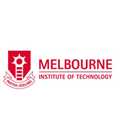Master of Networking (Melbourne)
Master of Networking (Melbourne)
Get ahead of the pack in a ground breaking industry Organisations are under pressure to adapt digitally and networking professionals are in higher demand than ever. The Master of Networking (MNet) was developed in collaboration with industry. We make sure our course content remains highly relevant to a rapidly evolving…
Categories
COURSE DESCRIPTION
Get ahead of the pack in a ground breaking industry
Organisations are under pressure to adapt digitally and networking professionals are in higher demand than ever.
The Master of Networking (MNet) was developed in collaboration with industry. We make sure our course content remains highly relevant to a rapidly evolving industry. That means you’ll graduate with the latest knowledge and skills at your fingertips.
CAREER PATHS
A career in networking could see you working in the following roles
Network Manager
Network Analyst
Network Design Engineer
Mobile Applications Developer
Help Desk Manager
Chief Information Security Officer
Systems Engineer
Network Analyst
Forensic Computer Analyst
Information Security Analyst
Penetration Tester
Security Architect
IT Security Engineer
Security Systems Administrator
IT Security Consultant
LEARNING OUTCOMES
Graduates of Master of Networking have these learning outcomes:
Possess a body of knowledge that demonstrates an understanding of state-of-the-art developments in the area of Networking:
by understanding recent developments in the discipline and/or area.
with knowledge of research principles and methods in a field of work and/or learning.
Be able to investigate and evaluate key network technologies and apply them effectively in an organisation with:
skills to investigate, analyse and synthesise complex information.
skills to generate and evaluate complex ideas and concepts.
communication skills to justify theoretical propositions, methodologies, conclusions.
technical skills to design, evaluate, implement, analyse and theorise about developments.
Exercise critical thinking and problem-solving ability to tackle complex new problems with:
mastery of theoretical knowledge, critical reflection on their and practice.
technical research sills to interpret theoretical propositions, methodologies and conclusions.
communication skills to argue about design, evaluation and analysis of developments.
Be capable of independent professional work with a high level of autonomy and accountability.
Demonstrate significant research, analysis and evaluation skills in the networking discipline by:
Planning and executing a substantial research-based project, capstone experience/piece of scholarship.
Be able to adapt their knowledge and collaborate and communicate with others in a professional setting with:
Creativity and innovativeness to new situations.
REQUIREMENTS
Academic Entry Requirements
Successful completion of Australian Bachelor degree or equivalent.
For the cognate stream: An Australian bachelor degree or equivalent in Information Technology or a related discipline such as computer science, software engineering, computer engineering or networking.
For the non-cognate stream: An Australian bachelor degree or equivalent in any other discipline.
English Language Requirements
IELTS (Academics) 6.0 with no band less than 5.5 or equivalent.
TOEFL iBT – Overall score 60-78 with minimum scores: Reading 12, Listening 11, Speaking 17, Writing 20
PTE Academic – Overall score 50 with (no score less than 46)
Cambridge CAE – CAE Score of 169 (no band less than 162)
EDUCATIONAL INSTITUTION
Established in 1996, MIT has provided degrees in leading industries since its inception. MIT offers undergraduate and postgraduate courses in business, business analytics, networking, cyber security, data analytics and software and telecommunications engineering. MIT’s courses include tactical industry projects and internships. The institute has relationships with industries of all sizes and types, both profit and not-for-profit. MIT trains students in specialised skills that are in demand in the workplace so that graduates enter the workforce feeling confident they can succeed in a competitive environment. Students at MIT are guaranteed hands-on industry experience in every degree. Student care at MIT goes beyond what happens in the classroom. Student at MIT are given the support and taught the skills required to succeed in the real world. MIT’s English classes teach students to use English in a variety of social and personal situations.




